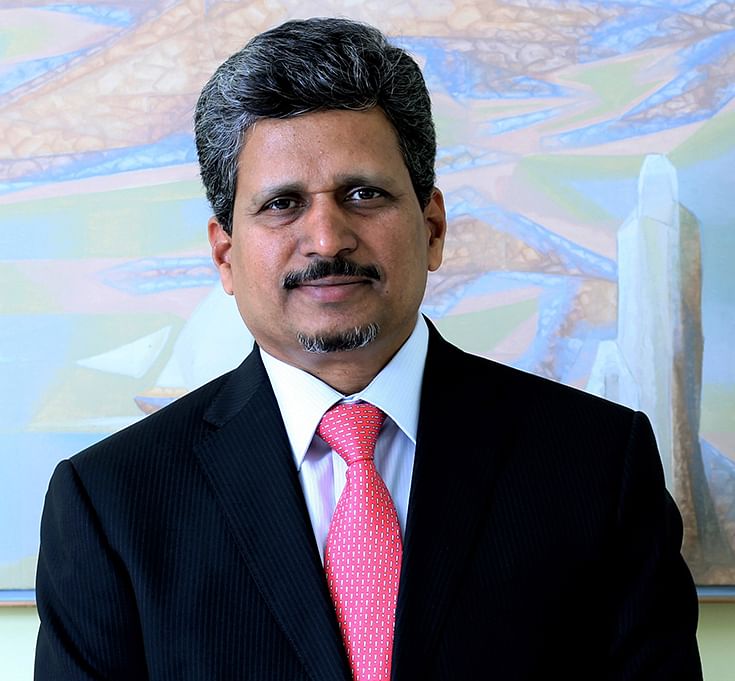Union Budget 2019: What industry stakeholders have to say
Union Budget 2019 sees a mixed response from industry stakeholders.
The first Union Budget at the hands of Finance Minister Nirmala Sitharaman, announced today, sees a sharp focus on accelerating electric mobility in India. The ICE-engined vehicle industry, which is actively engaged in the technological shift to BS VI emission norms and has invested considerable monies in the upgrade, was expecting a reduction in GST to kickstart growth, has little to smile about.
Here is how industry stakeholders and captains of industry responded.
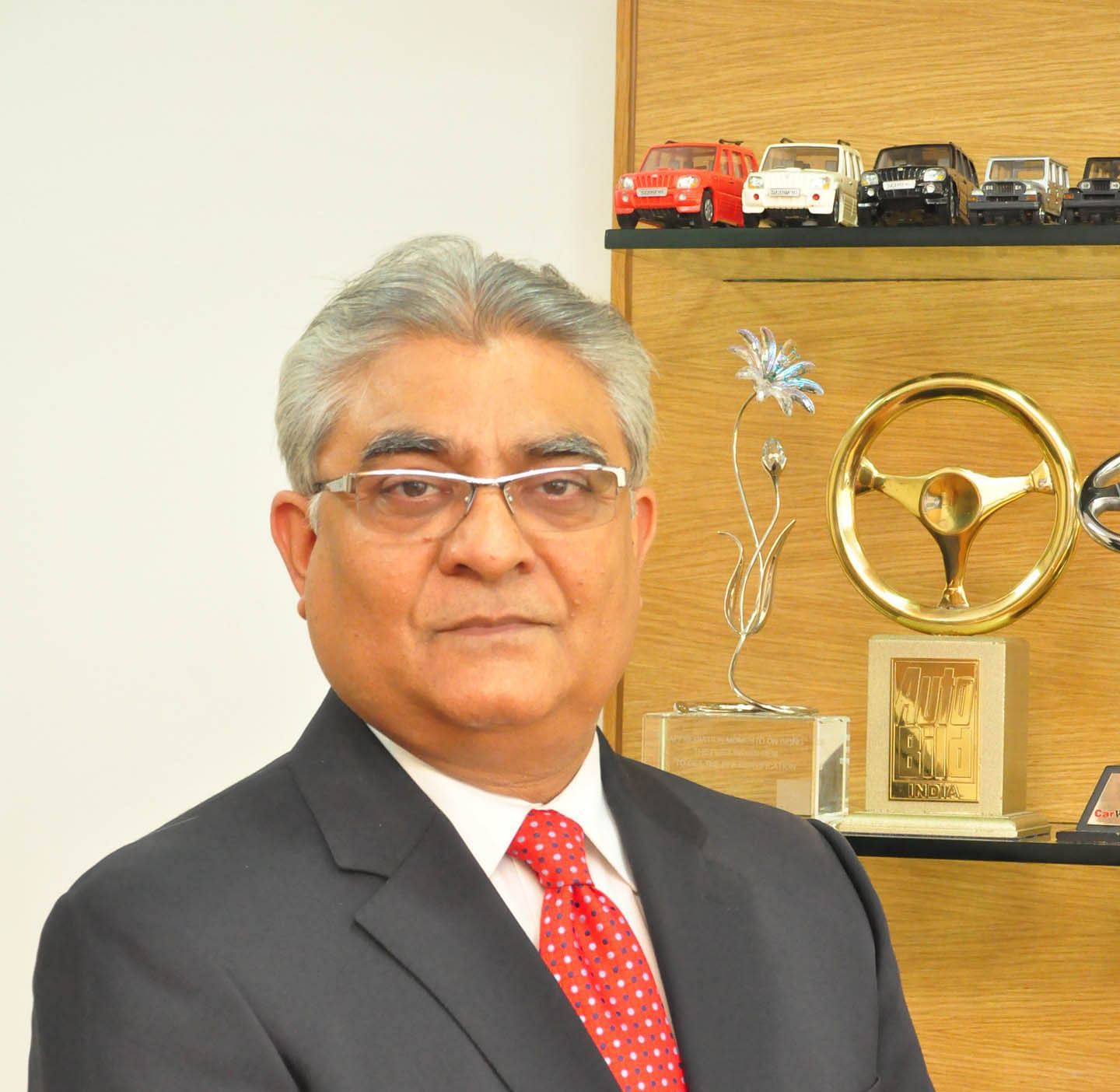
Rajan Wadhera, president, SIAM
“We welcome the various additional measures to promote EVs, like reducing the GST to 5%, exemption in customs duty on EV parts and especially the Income Tax deduction on the interest component paid for loans taken for purchasing EVs. All these were recommendations given by SIAM and we are grateful to the FM for having accepted them. These measures will certainly help in making EVs more affordable and attractive to consumers.
However, the auto industry is currently going through a very difficult time and the industry was expecting some form of a stimulus package in the Budget in line with what had been done by the government during the previous two similar slowdowns. It is disappointing that the FM has not recognised the distress in the auto sector and not come out with any kind of support or stimulus. However, the initiatives for improving liquidity in the market by capital infusion in the banks should help the industry to some extent.
Furthermore, the industry had expected that a voluntary scrappage policy would be announced, which did not happen. There was also no announcement of extension of the 200% weighted deduction for R&D expenses.
In fact, increasing the duties on auto parts and putting an additional cess on petrol and diesel could drive up costs of vehicles, especially where volumes are low and localisation is not viable and the overall cost of operations of transport which could further aggravate the slowdown in the industry.”

Ram Venkataramani, president, ACMA
“The Budget is indeed futuristic and lays the foundation for India becoming a global economic powerhouse in the next few years. The industry welcomes the measures announced to improve liquidity in NBFCs. This will provide respite to the cash-crunch being faced by the industry as also help improve sales in the auto sector. NBFCs today extend credit for most vehicle sales in the country.
We are also glad that the government envisions making India a global hub for manufacturing of EVs. Reduction of GST from 12 percent to 5 percent and additional Income tax deduction of Rs 150,000 on interest paid on loans for purchase of EVs are steps in the right direction to make EVs affordable. Further, focus on mega manufacturing projects for semiconductors, photo-voltaic cells and Li-ion battery will facilitate localisation and spur manufacturing of EV components in India.
The enhancement of duty on select items such as oil and air filters, glass, lighting, vehicular locks, horns, sound signal equipment, windscreen wipers and catalytic convertors is welcome. This will not only provide impetus to the local manufacturing industry but also prevent sub-standard imports that adversely impact the domestic market, especially the aftermarket.
Other promising measures announced include extending 25 percent corporate tax to companies with turnover of up to Rs 400 crore. Over 70 percent of the companies engaged in the auto component manufacturing are SMEs and will gain from the measure.
The focus on AI, IoT, big data and robotics is good as they are key to modern manufacturing and improving productivity. These will facilitate India in being a globally competitive manufacturing nation.
The thrust given to the development of rural economy, infrastructure, particularly roads, augurs well towards creating a vibrant automotive market in the country, which in turn, will fuel growth and development of the domestic auto component industry."
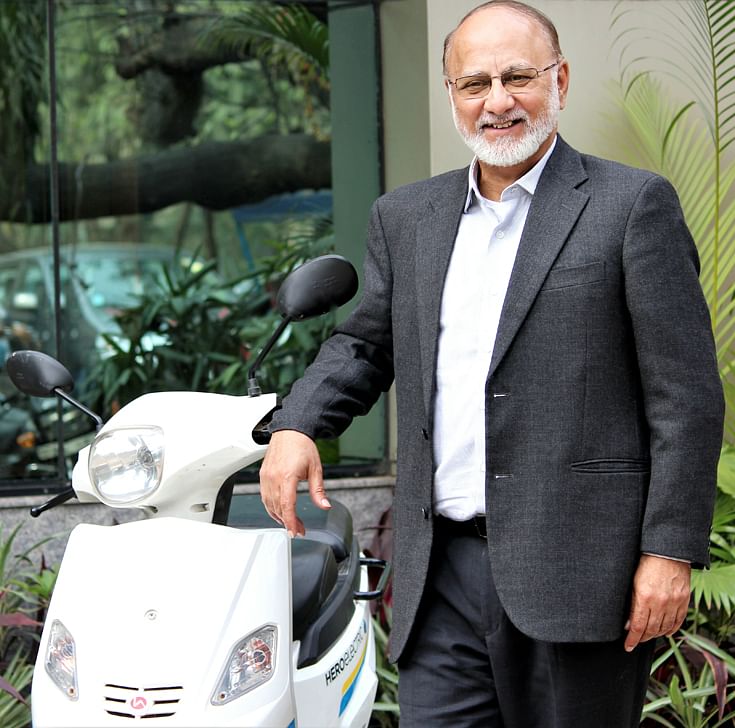
Sohinder Gill, Director General, Society of Manufacturers of Electric Vehicles
“To make India an EV manufacturing hub and the decision on incentivising EV manufacturing by extending benefits under Section 35AD(1) are moves in the right direction. It will help in the creation of a local manufacturing base and encourage component manufacturers to invest in the sector.
The provision of additional income tax deduction of up to Rs 150,000 on purchase of EVs would encourage customers to opt for EVs. Additionally, bringing down customs duty on lithium-ion cells to nil would further cut down the cost of batteries and help local battery manufacturers to scale-up the business.
The EV industry has witnessed 100 percent growth in the FY 18-19, and with these key measures announced today, we anticipate a brighter future ahead for the industry.”

Shailesh Chandra, President - E-Mobility Business and Corporate Strategy, Tata Motors
“The incentives in terms of additional interventions and steps to support EV adoption reinforce a strong commitment by the government to steer electrification on a faster trajectory. The proposal to lower the GST rate for EVs to 5% and reduction in duties of EV components, which we are studying, is a welcome step. It will help in further narrowing down the cost of ownership gap against ICE vehicles.
Additionally, private buyers, who were earlier not considered for a subsidy through FAME II, will now have a reason to seriously consider an EV with the tax exemption of up to Rs 150,000. Tata Motors has been proactively participating in the EV ecosystem creation, aligned to government’s vision of achieving a high EV penetration by 2030. Today’s announcement further emboldens our resolve and we will further accelerate our efforts.”

Shekar Viswanathan, Vice-Chairman & Whole-time Director, Toyota Kirloskar Motor
“The focus of the 89th Union Budget has mostly been on connectivity and infrastructure emphasising on demand for connectivity across rural and urban markets. Infrastructure focus including those on road development, will lead to faster and more effective mobility solutions. This is positive news for the auto sector. Initiatives for improving liquidity in the market by capital infusion in the banks should also be of some help to the industry. Furthermore, the proposal of streamlining labour laws could lead to faster resolution of labor disputes.
“We appreciate the government’s initiative to promote a clean and green environment with special benefits to encourage EVs. EVs do bring the benefits towards fossil fuel conservation and lowering of carbon emissions. There are other forms of green mobility which will help the government achieve the same objective. The government should also align its taxation policies towards such green mobility which promote reduction of fossil fuel and betterment of environment. Thus, the focus of taxation should not only be restricted to promote and facilitate the shift to all types of green mobilities but should also be towards all other means which contribute effectively to increased fuel economy and reduced tailpipe emissions.”
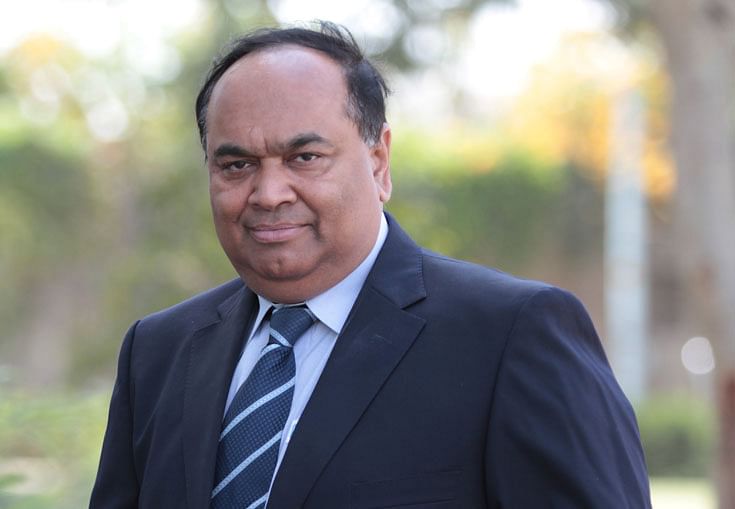
N K Minda, Chairman and Managing Director, UNO Minda
“As a component manufacturer, we welcome the announcement made by the government to encourage the EV industry in India with a reduction in the GST rate on EVs from 12% to 5%, along with additional income tax deduction of Rs 150,000 on the interest paid on loans taken to purchase EVs.
The EV project will also have a major ‘Make in India’ boost with the levy of custom duty on import of auto components and the relaxation of custom duty on lithium ion battery, which would help local manufacturers to supply affordable batteries and components to the OEMs.
We also welcome the government’s move to increase investment in infrastructure, job creation in SMEs and MSMEs, extending support towards start-ups, digital economy and urban and rural India, which will provide the right impetus in job creation and a new vision for India.”
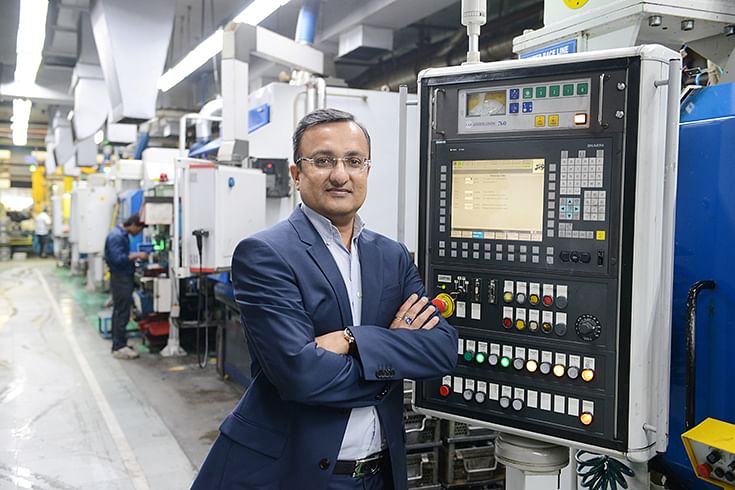
Rohit Saboo, CEO and MD, National Engineering Industries
“Infrastructure development has always been prerequisite for growth, which has been taken well into consideration in this year’s Union Budget. The government’s strong focus on boosting infrastructure and connectivity with an investment of Rs 80,250 crore for phase three of the Pradhan Mantri Gram Sadak Yojana, will bring positive sentiments for the sector by increasing demand for transport.
These measures will surely lead to improved sales of automotive products, especially two-wheelers, farm equipment and entry level passenger vehicles which in turn, will fuel the growth of the auto components industry.
As manufacturing holds a key position in the growth of the Indian economy, the increased focus on safety and modernisation of railway infrastructure supported by a public-private partnership to unleash faster development will further promote innovation and creation of state-of-art technology in the sector. Additionally, substantial mention of electric mobility in the Union Budget is a humbling acknowledgement for the nascent industry.
An amount of Rs 10,000 crore earmarked for the FAME (Faster Adoption and Manufacturing of Hybrid and Electric Vehicles), GST reduction and tax reductions is indeed a welcome move as it will make electric vehicles affordable for consumers.”

Martin Schwenk, Managing Director and CEO, Mercedes-Benz India
“We welcome the government’s vision of achieving a US$ 3-trillion economy and becoming the sixth largest economy in the world by end of this year. However, the decision to increase the custom duty on automotive parts was not expected and it is not going to help create demand in the industry which already is facing continued strong macro-economic headwinds, resulting in subdued consumer interest.
The increase in custom duty coupled with increased input costs due to fuel price hike, could lead to an increase in the price of our model range. Though the Budget has given a boost to green mobility, we wished for the inclusion of plug-in-hybrids for duty exemption as well, as that would have further given a push to the green mobility efforts.”
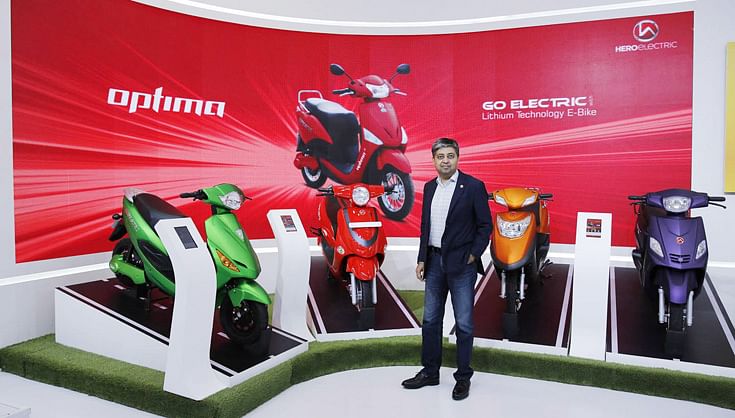
Naveen Munjal, managing director, Hero Electric
“The EV industry needed a substantial boost and support from the government and we welcome the government’s recommendation of reduction of GST on EVs from 12 to 5 percent. In addition to this, income tax reduction of up to Rs 150,000 on the interest paid on EV loans is an extremely positive move which will encourage customers to make a switch from ICE vehicles to EVs.
Reduction in custom duty on lithium-ion cells would help local component manufacturers in scaling up the production thereby further reducing the overall upfront cost of electric vehicles in India. The government’s continued emphasis on FAME II initiative and strengthening of EV infrastructure will definitely encourage manufacturers to further invest in the ecosystem thereby lowering both crude oil imports and air pollution leading to a cleaner and greener future. We are confident that such directives will boost up the rate of EV adoption in the country and will act as a catalyst in the government’s aim of faster adoption of electric vehicles and higher level of localisation under the ‘Make In India’ initiative.”

Chetan Maini, co-founder and vice-chairman, Sun Mobility
“The decision to reduce GST on EVs from 12 percent to 5 percent is a reassuring move by the government and furthers the country’s commitment to transition to an EV future. As an EV energy infrastructure provider, we welcome the move; however it would be more beneficial for the end-user, if the government also focuses on reducing GST on charging / battery swapping services from 18 percent to 5 percent (same as that for public transport services).
This GST cut on EV will help in reducing the cost difference between ICE and EVs especially in three-wheeler segment where the differential will now be 23 percent (28% - 5%). This is a big boost to EV makers to be able to create more affordable EVs."

Sulajja Firodia Motwani, founder and CEO of Kinetic Green and vice-chairperson,
Kinetic Group
“The Budget 2019 is extremely positive for the EV sector and re-affirms the Indian government’s commitment to rapid electrification of India’s automobile sector. The approval and adoption of FAME II, detailed policy to incentivise and support accelerated adoption of EVs with an outlay of a whopping Rs 10,000 crores for the next 3 years removes all ambiguity surrounding the long-term EV policy. am confident that this move will encourage manufacturers to enhance investments in this sector and customers to purchase move EVs.
Reduction of GST on EVs will make them more attractive when compared to IC engine vehicles that attract 28% GST. Further, the proposed increase of Rs 1 in price of diesel and petrol will enhance the attractiveness of lower running cost of EVs. The tax deduction for loans taken by customers to purchase EVs will also help in creating demand from consumers.
Further, announcements such as proposed tax breaks on mega investments for lithium battery and cell manufacturing will pave way for a “Make in India” focus across entire supply chain of EV manufacturing in India.
All in all, the government has taken several steps in the right direction for a rapid increase in investments in EVs by the industry and adoption of EVs by consumers.”

Tarun Mehta, CEO and co-founder, Ather Energy
"The government has already moved the GST Council to lower GST on EVs from 12 percent to 5 percent and the additional income tax reduction is a major boost for end consumers to purchase EVs. It addresses the concern of the upfront cost of purchasing electric vehicles. This is the best example of a consumer-driven change and is also how Ather envisions the EV sector to achieve scale and growth. It now becomes imperative that OEMs chalk out plans that allows the industry to scale up and meet the demand for compelling products."

Kapil Shelke, founder, Tork Motors
"This will mean more component manufacturing will happen in India, which will help us with reduced material cost and lead time. This is a positive sign for start-ups like us who will soon begin selling electric motorcycles. The end cost for the customer will reduce. This will mean that the offtake for EVs will go up even for premium vehicles."

Ashish Harsharaj Kale, President, FADA
“The finance minister has delivered a balanced budget which augurs well for overall development and economic conditions as well as social inclusion of all citizens. Our Budget expectations were high. Looking at the current state of the industry, we were expecting specific measures to revive growth and we are disappointed. Moreover, with an addition of cess on petrol and diesel leading to a price hike by Rs 1 might impact auto sales, especially in the price- sensitive two-wheeler segment.
A spend of Rs 80,250 crore for upgradation of roads under PM Gram Sadak Yojna will definitely boost CV sales and with better connectivity will have a rub-off effect on overall rural auto sales in the longer term. Focus on ensuring regular funding to sound NBFCs as well as allowing them similar treatment as allowed to banks for booking interest income, will help in bringing down the current liquidity crises and provide some respite to NBFCs, who play a very crucial role in auto sales growth.”
In these trying times when auto sales are struggling, raising the limit of 25% Corporate Tax from turnover of up to Rs 250 crore to up to Rs 400 crore will definitely boost sentiments towards doing business and will benefit some FADA members. The focus on EV, the benefits announced in income tax rebate, the intent to reduce GST on EV and the Budget allotted to FAME II spells the strong intent of the government in ensuring self-reliance on our countries energy needs and will benefit our nation in the longer term.”
Ajay Shankar, Distinguished Fellow, TERI
“The Union Budget demonstrates the government’s vision of putting India on the path to sustainable development and takes forward the government’s commitment to cleaner environment as was highlighted in the interim budget.
The electric mobility sector has been given a booster in terms of tax benefits. This will accelerate the deployment and usage of electric vehicles in India, resulting in cleaner air and greater usage of renewable energy.
Among the big ticket ideas is the scheme to promote mega investment in sunrise and advanced technology areas and among the industries prioritised are solar photovoltaic cells, lithium storage batteries, and solar electric charging infrastructure. These are likely to give a huge boost to renewable energy. The next thing is to focus on storage, in which the lithium batteries will play an important role. It is also important for development of electric vehicles industry in India which the budget has also tried to promote.”
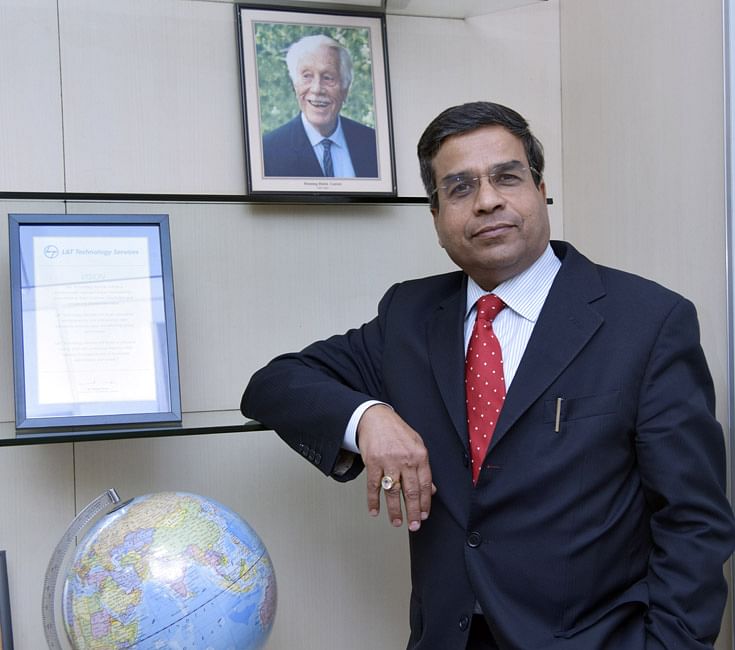
Dr Keshab Panda, CEO & MD, L&T Technology Services
"The earmarking of Rs 10,000 crore over a three-year period towards building a wider ecosystem of EVs is a welcome move. It is now for the value chain players to come together and replicate the success achieved by Indian ER&D players for global auto majors on the EV front.”
Dr Jaijit Bhattacharya, Chair, policy working group, IET FoMT Panel & President - Centre for Digital Economy Policy Research & Adjunct Professor, IIT Delhi
“It is a very comprehensive budget with deep structural reforms laid out; that is the need of the hour. It is heartening to see continued focus on social safety net in both urban and rural areas and new focus on extending pension to small shopkeepers. The continued focus on public spending, including $1.5 trillion (Rs 10,309,500 crore) on infrastructure over 5 years and housing, would help get the economy on track to become a $5 trillion (Rs 34,365,000 crore) economy in 5 years. The special focus on electric mobility is most welcome and will surely give a fillip to faster electrification of transportation.”

N Nagasatyam, Executive Director, Olectra Greentech
“This Budget has come as a pleasant surprise for the EV industry as the announcements are more than what we were expecting. Initially, The government has shown its commitment by making it amply clear that EV manufacturing is the next big thing in its vision. Now, it is the responsibility of industry to rise to the expectations of the government and work towards more localisation. An income tax deduction of Rs 150,000 on interest paid for buying an EV will certainly encourage the public and we will see a surge in the EV adoption.”
Rajeev Kapur, MD, Steelbird Helmets & President, Two-Wheeler Helmet Manufacturers
“It was a long-pending reform and I am sure this will create extra space for mid-size companies to invest more into research, development and capacity creation. Besides, the focus area of EVs will also help auto sector to transform rapidly and create a level playing field for new innovation in mobility.The government has shown its intent on two another key areas -- strengthening rural roads and national highways, which is worth applauding as it will lead to the better conditions and better network of roads and significanty reduce fatal accidents, reduce the health care burden and improve overall connectivity."
Goldie Srivastava, Co-Founder and CEO, SmartE
“We welcome today's Union Budget and the measures announced to boost the electric mobility sector in the country. The directive to the GST Council to lower the GST rate on EV from 12% to 5% will be immensely beneficial to the overall industry and will certainly help spur the adoption of EVs. Moreover, the additional income tax deduction of Rs 150,000 on the interest paid on loans to purchase EVs will boost consumer confidence leading to higher adoption. We echo the government's vision to make India a hub for EV manufacturing and SmartE will continue to play an integral role in the development of the sector."
Sanjay Gupta (India Head), VP and India country manager, NXP Semiconductor
"We welcome the government’s move to lower the GST rate from 12% to 5% for purchase of EV and the vision to make India as the global manufacturing hub. The push for FAME II by providing the right incentives can encourage a faster conversion rate. Semi-conductors and a host of other components will be vital in developing the EV ecosystem in the country and as NXP, we will play a vital role to foster this goal. Initiatives such as complete elimination of customs duty on some EV components could prove to be a game-changer for the auto-industry. Currently, over 80 percent of the cars in India use NXP chips for the RFID key.”
R&D is crucial for an advanced ecosystem of infrastructure to exist. The government’s focus on incentivising research by forming a National Research Foundation and encouraging foreign engineers and researchers to come and collaborate is a landmark announcement for India’s electronic industry. For NXP, India is majorly the innovation hub. We run three design/ R&D centres in India which innovate technologies for the world. There are more than 2,000 people in Design Centres (Noida, Bangalore and Hyderabad) who are involved in development of semiconductor hardware and software designs across various verticals – Automotive (connected cars), digital payments (NFC enabled), 5G (RF solutions) and many more.”
Deval Seth, Managing Director, Giesecke & Devrient MS India
"Building India into a $3 trillion (Rs 20,619,000 crore) economy may seem ambitious but is still not a farfetched dream with the kind of results India has shown on the economic front in the recent years. Technology, digitisation and modernisation will have a great role in doing this. For instance, as more devices get connected, the market for eSIMs is set to explode in India in areas such as connected cars, manufacturing and consumer durables. The government’s move to lower the GST rate on EVs from 12% to 5% and to make EVs affordable for consumers with additional income tax deduction will bring connectivity to the vehicles and G&D sees India strongly moving forward on the eSim journey which has been adopted globally."
Suyash Gupta, director general, Indian Auto LPG Coalition
"While the tax incentive and GST reduction on EVs demonstrates government's focus on clean energy initiatives, yet again it is limited to the EV space. The Budget should have focused on providing incentives to other clean fuels such as auto LPG as well. It is imperative for the country to adopt a basket of alternative fuels rather than a singular focus on the EVs. Just by reducing GST on auto LPG and on the conversion kits, the government could have given a key push to this sector. Hope the government addresses the issue soon in upcoming GST council meetings."
V Anbu, Secretary, Director General & CEO , IMTMA
“The lower 25 percent corporate tax on companies with turnover of up to Rs 400 crore is expected to boost investments. It is a positive step towards development of the MSME sector and enhancing their production capacities. The machine tool industry is the backbone of MSMEs and this bodes well for machine tool manufacturers. Indian machine tool industry has around 1000 units engaged in production of machine tools, accessories / attachments, subsystems and parts. More than 90 percent of these are in the MSME sector and this sector stands to benefit immensely from this Budget.
The government’s move towards imparting new-age skills like artificial intelligence, internet of things, big data, 3D printing, virtual reality, and robotics as a part of the education curriculum can create a large pool of manpower with industry-relevant skills. This will also create avenues for new jobs.”
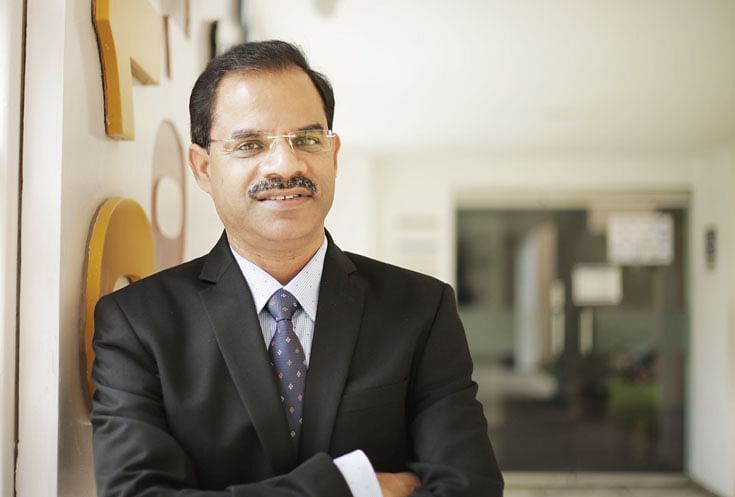
J K Gupta, Chief Financial Officer, Tata Technologies
“The Finance Minister has done a commendable job of addressing the breadth of issues important for the economy. In particular, focus on infrastructure and measure to ease liquidity including recapitalisation of public sector banks should help to address growth requirements. The budget has kept in mind the demands of various sectors while remaining within fiscal prudence and controlling fiscal deficit.
These measures, coupled with initiatives on R&D and skill development, will help in employment generation and fuel growth. The focus on clean energy is a welcome step. We welcome measures announced to provide much-needed support to EV manufacturing. It is heartening to see the measures cover both demand-side push and supply-side support in the form of incentives and reduced taxes. We would like to see more measures to address EV infrastructure investment requirements.”
Lead image: courtesy picpedia
Read more: Union Budget 2019 makes EVs cheaper, petrol and diesel see Rs 2 hike
Union Budget 2019: What industry stakeholders have to say
Mahindra & Mahindra open to making EV batteries in India with a global partner
Mahindra breaks ground on new EV powertrain plant in Chakan
Tough FAME II norms see only 7 OEMs qualify for incentives
India plans massive renewable energy expansion but fossil fuel-based energy to stay powerful
RELATED ARTICLES
Cosmo First diversifies into paint protection film and ceramic coatings
The Aurangabad, Maharashtra-based packaging materials supplier is leveraging its competencies in plastic films and speci...
JSW MG Motor India confident of selling 1,000 M9 electric MPVs in first year
The 5.2-metre-long, seven-seater luxury electric MPV, which will be locally assembled at the Halol plant in Gujarat, wil...
Modern Automotives targets 25% CAGR in forged components by FY2031, diversifies into e-3Ws
The Tier-1 component supplier of forged components such as connecting rods, crankshafts, tie-rods, and fork bridges to l...






 By Autocar Professional Bureau
By Autocar Professional Bureau
 05 Jul 2019
05 Jul 2019
 18833 Views
18833 Views




